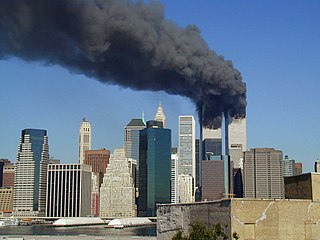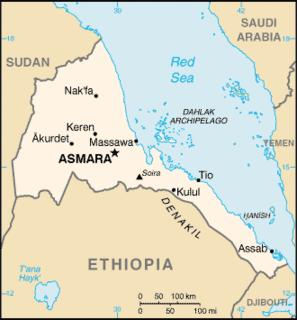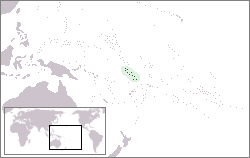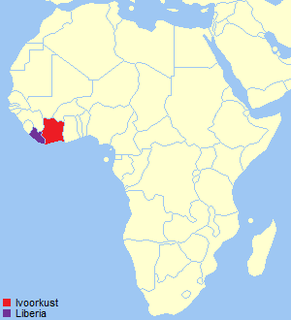A United Nations Security Council resolution is a UN resolution adopted by the fifteen members of the Security Council; the UN body charged with "primary responsibility for the maintenance of international peace and security".
A United Nations General Assembly Resolution is voted on by all member states of the United Nations in the General Assembly.

United Nations Security Council Resolution 478, adopted on 20 August 1980, is one of seven UNSC resolutions condemning Israel's attempted annexation of East Jerusalem. In particular, UNSC res 478 notes Israel's non-compliance with UNSC res 476 and condemned Israel's 1980 Jerusalem Law which declared Jerusalem to be Israel's "complete and united" capital, as a violation of international law. The resolution states that the Council will not recognize this law, and calls on member states to accept the decision of the council. This resolution also calls upon member states to withdraw their diplomatic missions from the city.

United Nations Security Council Resolution 425, adopted on March 19, 1978, five days after the Israeli invasion of Lebanon in the context of Palestinian insurgency in South Lebanon and the Lebanese Civil War, called on Israel to withdraw immediately its forces from Lebanon and established the United Nations Interim Force In Lebanon (UNIFIL). It was adopted by 12 votes to none; Czechoslovakia and the Soviet Union abstained, and China did not participate.

United Nations Security Council Resolution 1373, adopted unanimously on 28 September 2001, is a counter-terrorism measure passed following the 11 September terrorist attacks on the United States. The resolution was adopted under Chapter VII of the United Nations Charter, and is therefore binding on all UN member states.
A United Nations resolution is a formal text adopted by a United Nations (UN) body. Although any UN body can issue resolutions, in practice most resolutions are issued by the Security Council or the General Assembly.

United Nations Security Council Resolution 1718 was adopted unanimously by the United Nations Security Council on October 14, 2006. The resolution, passed under Chapter VII, Article 41, of the UN Charter, imposes a series of economic and commercial sanctions on the Democratic People's Republic of Korea in the aftermath of that nation's claimed nuclear test of October 9, 2006.

United Nations Security Council Resolution 1860, adopted on January 8, 2009, after recalling resolutions 242 (1967), 338 (1973), 1397 (2002), 1515 (2003) and 1850 (2008) on the Israeli–Palestinian conflict, the Council called for an immediate ceasefire in the Gaza War following 13 days of fighting between Israel and Hamas.

United Nations Security Council Resolution 1907, adopted on December 23, 2009, imposed an arms embargo on Eritrea, travel bans on its leaders, and froze the assets of some of the country's political and military officials after accusing the Eritrean government of aiding Al-Shabaab in Somalia and reportedly refusing to withdraw troops from its disputed border with Djibouti, following a conflict in 2008. The African Union and other organisations had been calling on the Security Council to sanction Eritrea for several months.

United Nations Security Council resolution 1290 was adopted on 17 February 2000. Resolution 1290 examined Tuvalu's application to become the 189th member of the United Nations (UN). Tuvalu achieved independence in 1978 after over eighty years of British colonial rule. The country has struggled economically, and it took the 2000 sale of Tuvalu's Internet country code top-level domain .tv for the nation to be able to afford UN membership. Resolution 1290 was adopted unopposed, although China abstained due to concerns over Tuvalu's relationship with Taiwan.

United Nations Security Council resolution 1147, adopted unanimously on 13 January 1998, after recalling previous resolutions on Croatia including resolutions 779 (1992), 981 (1995), 1025 (1995), 1038 (1996), 1066 (1996), 1093 (1997) and 1119 (1997), the Council authorised the United Nations Mission of Observers in Prevlaka (UNMOP) to continue monitoring the demilitarisation in the Prevlaka peninsula area of Croatia until 15 July 1998.

United Nations Security Council resolution 1387, adopted unanimously on 15 January 2002, after recalling previous resolutions on Croatia, including resolutions 779 (1992), 981 (1995), 1088 (1996), 1147 (1998), 1183 (1998), 1222 (1999), 1252 (1999), 1285 (2000), 1307 (2000), 1357 (2001) and 1362 (2001), the Council authorised the United Nations Mission of Observers in Prevlaka (UNMOP) to continue monitoring the demilitarisation in the Prevlaka peninsula area of Croatia for six months until 15 July 2002. It was the first Security Council resolution adopted in 2002.
United Nations Security Council resolution 1390, adopted unanimously on 16 January 2002, after recalling resolutions 1267 (1999), 1333 (2000), 1363 (2001), 1368 (2001), 1373 (2001) 1378 (2001) and 1383 (2001) concerning the situation in Afghanistan and terrorism, the Council imposed further sanctions on Osama bin Laden, Al-Qaeda, the Taliban and others associated with them.

United Nations Security Council Resolution 1968, adopted unanimously on February 16, 2011, after recalling previous resolutions on the situation in Côte d'Ivoire, including resolutions 1933 (2010), 1942 (2010), 1946 (2010), 1951 (2010), 1962 (2010) and 1967 (2011), the Council extended the deployment of troops from the United Nations Mission in Liberia (UNMIL) to the United Nations Operation in Côte d'Ivoire (UNOCI) for an additional three months.

United Nations Security Council Resolution 2008 extended the mandate of the United Nations Mission in Liberia (UNMIL) for one year, until 30 September 2011. It was unanimously adopted on 16 September 2011.

United Nations Security Council Resolution 2022 was unanimously adopted on 2 December 2011, after recalling resolutions 2009 (2011).

United Nations Security Council Resolution 2075 was unanimously adopted on 16 November 2012. The Council demanded that Sudan immediately and unconditionally redeploy the oil police in Diffra from the Abyei area.

United Nations Security Council Resolution 2166, concerning the shootdown of Malaysia Airlines Flight 17, was sponsored by Australia and adopted unanimously on 21 July 2014. The resolution expressed support for the "efforts to establish a full, thorough and independent international investigation into the incident in accordance with international civil aviation guidelines" and called on all United Nations member states "to provide any requested assistance to civil and criminal investigations".

The United Nations Mission for Justice Support in Haiti (MINUJUSTH) is a peacekeeping mission in Haiti mandated by the United Nations Security Council through Resolutions 2350 (2017) and 2410 (2018).













